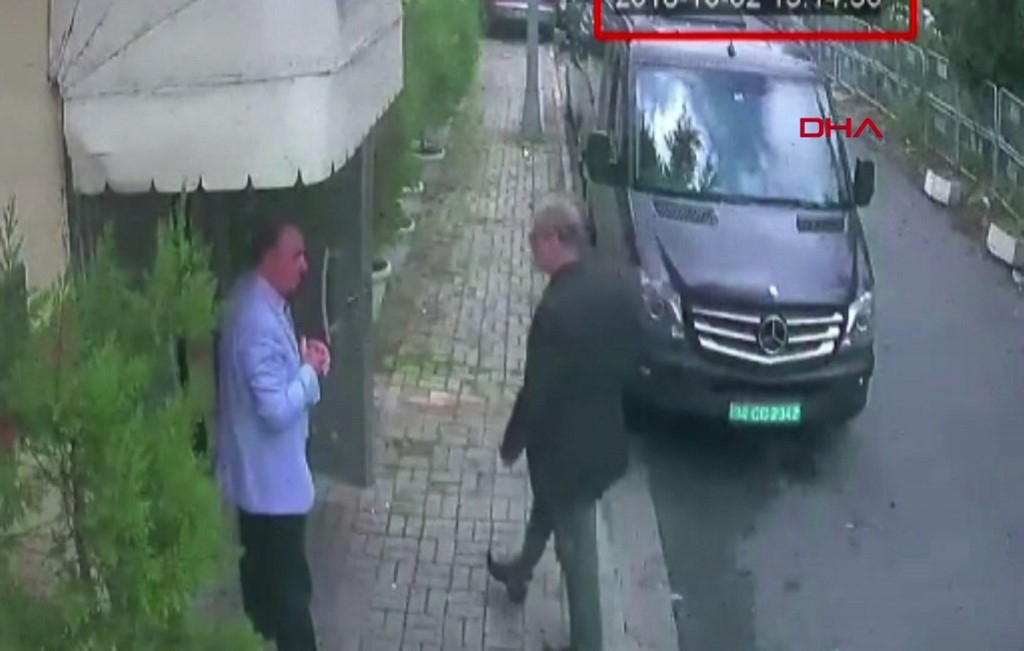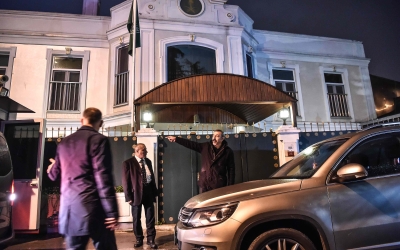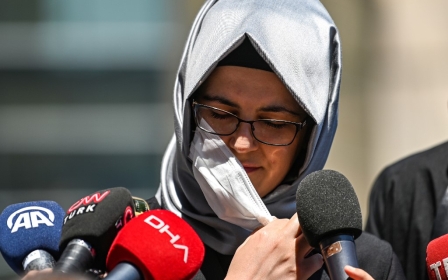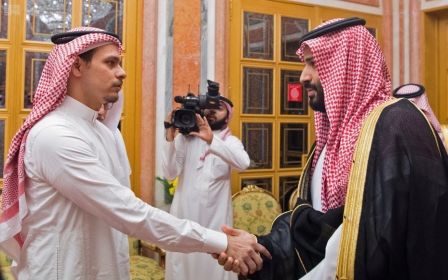Worker told to light tandoor oven soon after Khashoggi entered consulate, court hears

A Saudi consulate worker in Istanbul told a Turkish court on Friday that he was asked to light a tandoor oven less than an hour after Saudi journalist Jamal Khashoggi entered the building where he was killed.
Local technician Zeki Demir was giving evidence on the first day of the trial in absentia of 20 Saudi officials over Khashoggi's murder, which sparked global outrage and tarnished the image of Saudi Arabia's de facto ruler Crown Prince Mohammed bin Salman.
Turkish officials have said one theory police pursued was that Khashoggi's killers tried to dispose of his body by burning it after suffocating him and cutting up his corpse.
Demir told the court in Istanbul he had been called to the Saudi consul's residence after Khashoggi entered the nearby consulate on 2 October 2018.
"There were five to six people there [at the residence] … They asked me to light up the tandoor [oven]. There was an air of panic," he said.
Middle East Eye reported the same details in April after obtaining a copy of the indictment.
Khashoggi, a columnist for Middle East Eye and the Washington Post, had arrived at the consulate to seek papers needed for his wedding to his Turkish fiancee Hatice Cengiz.
According to Demir's testimony in the indictment, he reported seeing many skewers of meat and a small barbecue in addition to the oven in the consul's garden.
Marble slabs around the oven appeared to have changed colour, as if they had been cleaned with a chemical, the indictment reported him as saying.
Separate witness testimony in the indictment, from the consul's driver, said the consul had ordered raw kebabs to be bought from a local restaurant.
Demir offered to help with the garage door when a car with darkened windows arrived, but he was told to leave the garden quickly, the indictment said.
A police report seen by MEE in February 2019 said that the oven could reach temperatures of up to 1,000 degrees Celsius, which is “enough to burn all DNA evidence without a trace”.
'Monstrous intent'
The Turkish indictment accuses two top Saudi officials, former deputy head of Saudi Arabia's general intelligence Ahmed al-Asiri and former royal court adviser Saud al-Qahtani, of instigating "premeditated murder with monstrous intent".
It says 18 other defendants were flown to Turkey to kill Khashoggi, a prominent and well-connected journalist who had grown increasingly critical of the Saudi crown prince.
In December, a court in Riyadh sentenced five people to death and three to jail for the killing, but Khashoggi's family later said they forgave his murderers, effectively granting them a formal reprieve under Saudi law.
A Saudi prosecutor said at the time there was no evidence connecting Qahtani to the killing and dismissed charges against Asiri.
Seeking justice
In November 2018, the CIA concluded in an assessment that bin Salman ordered the murder of Khashoggi.
Agnes Callamard, the UN special rapporteur on extrajudicial, summary or arbitrary executions, was also present at the courtoom on Friday.
Callamard's report on the murder also linked the Saudi crown prince to the killing. Some of the suspects for Khashoggi's murder are close associates of the prince.
They include Maher Abdulaziz Mutreb, a former diplomat and intelligence officer who has been repeatedly pictured with the prince; Salah Mohammed Tubaigy, the head of forensic evidence at the Saudi General Security Department; and Fahad al-Balawi, a member of the Saudi royal guard.
Mutreb, Tubaigy and Balawi had been among the 11 people on trial in the Saudi capital, during which sources said many of those accused of the murder defended themselves by saying they were carrying out Asiri's orders, describing him as the operation's "ringleader".
Cengiz, who had waited unknowing outside the consulate while Khashoggi was killed, said she would continue to seek justice "not only in Turkey but everywhere possible".
Middle East Eye delivers independent and unrivalled coverage and analysis of the Middle East, North Africa and beyond. To learn more about republishing this content and the associated fees, please fill out this form. More about MEE can be found here.





